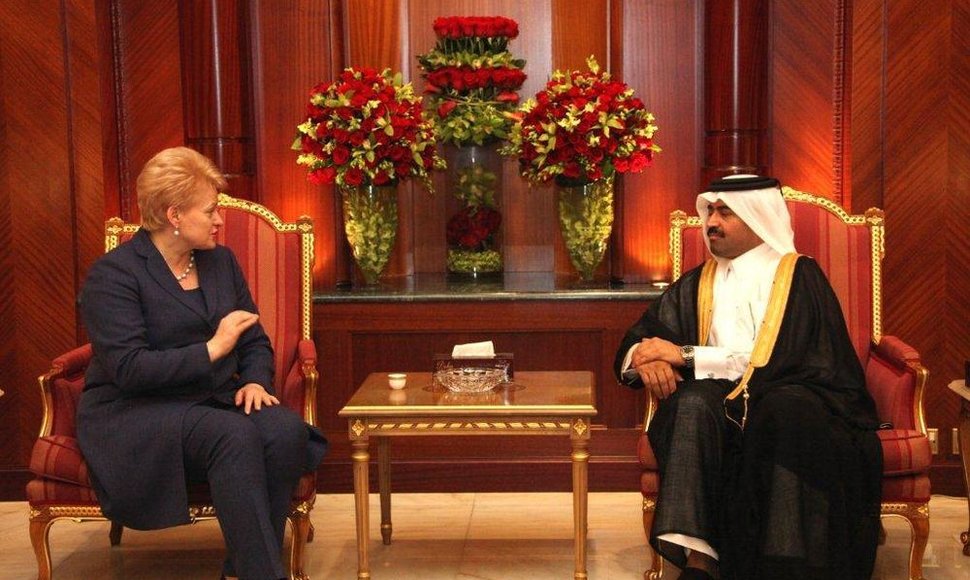Račius, a professor at Vytautas Magnus University, has also said that so far, neither Lithuania nor the Gulf countries have displayed interest in each other.
"The question is whether this visit can be seen as one that opens doors. The answer is as follows: if Lithuania really starts looking for gas suppliers, then perhaps there might be more of those visits to various countries, including Arab nations. Perhaps they will lead to more contacts, cooperation, primarily in economics and trade, perhaps some investment cooperation," Račius told BNS on Monday.
According to him, the prospect of cooperating with Qatar will only depend on Vilnius' efforts and on whether Lithuania offers economically attractive proposals, in search of gas suppliers to its future LNG terminal in the port of Klaipėda.
 |
| Redo Vilimo/BFL nuotr./ Egdūnas Račius |
"Only through active, consistent, and energy-and-cost-consuming efforts can we expect relative results, provided that our proposals to Qatar is economically beneficial for it. In other words, we can keep going there every week, shaking hands, bowing and saying nice things, but if they see no economic benefits for themselves, they will not get into this. We are too far, we are tiny, unattractive, and only pan-regional activity, be it joint gas imports with Poland, could interest Qatar," the political scientists said.
Račius noted that there had been previous attempts to establish economic relations with the Gulf countries.
"Two decades ago, the then Prime Minister Adolfas Šleževičius visited several Gulf countries, including Kuwait. There have been isolated and inconsistent attempts to do something. But this is a very good and symptomatic example showing that there has been no need. On the one hand, Lithuania was too small, too weak and too far to establish bilateral or multilateral relations, as there was no interest. There was no will not only from the Lithuanian but also from the Arab side," Račius described previous efforts to establish relations with the Arab world.
He also puts part of the blame on the Ministry of Foreign Affairs, noting that Lithuania has a diplomatic representation only in Egypt.
"In this sense, it’s obvious that we have not existed in the eyes of these countries and perhaps we still don’t exist. Lithuania has the only embassy in the Arab world, located in Egypt. Of course, we can say Egypt is a large country. In other words, we've had a history of taking no interest in each other. There have been isolated attempts, but nothing constructive," said the experts of Arab countries.
Račius believes that there's no point in talking about a wider cultural exchange as "we have no capacities, and they take no interest."
A delegation led by Lithuanian President Dalia Grybauskaitė left for Qatar on Sunday. The president discussed gas supply opportunities with the Gulf country's leaders. Lithuania intends to build an LNG terminal, which would launch operations at the end of 2014 and reduce the country’s dependence on Russian gas supplied by Gazprom.
The President's Press Service has said in a statement that "this is the first time over twenty years that economic relations have been established with the country which is one of the richest in the world."
It was also announced that Lithuania and Qatar agreed to create conditions for mutually beneficial cooperation.












